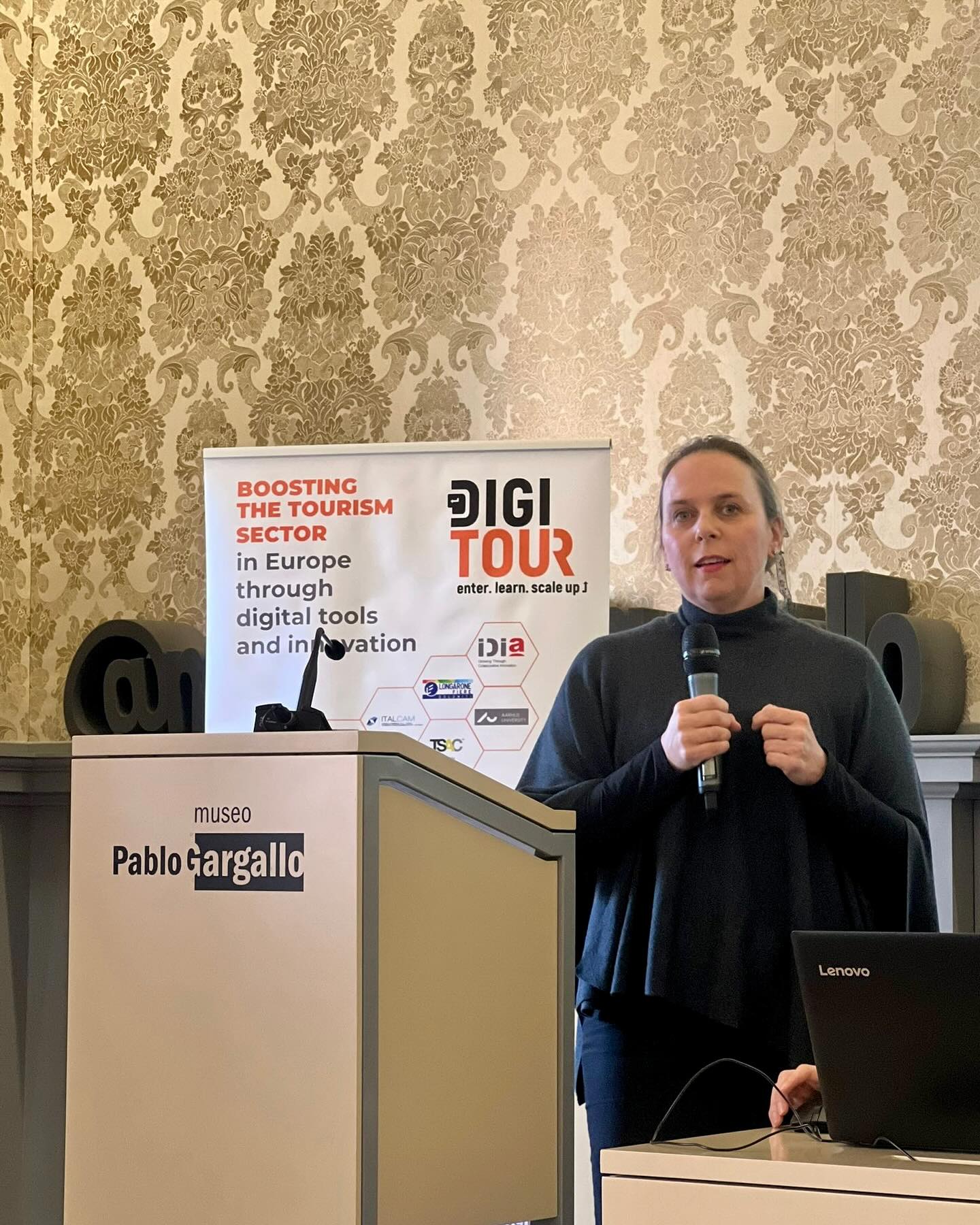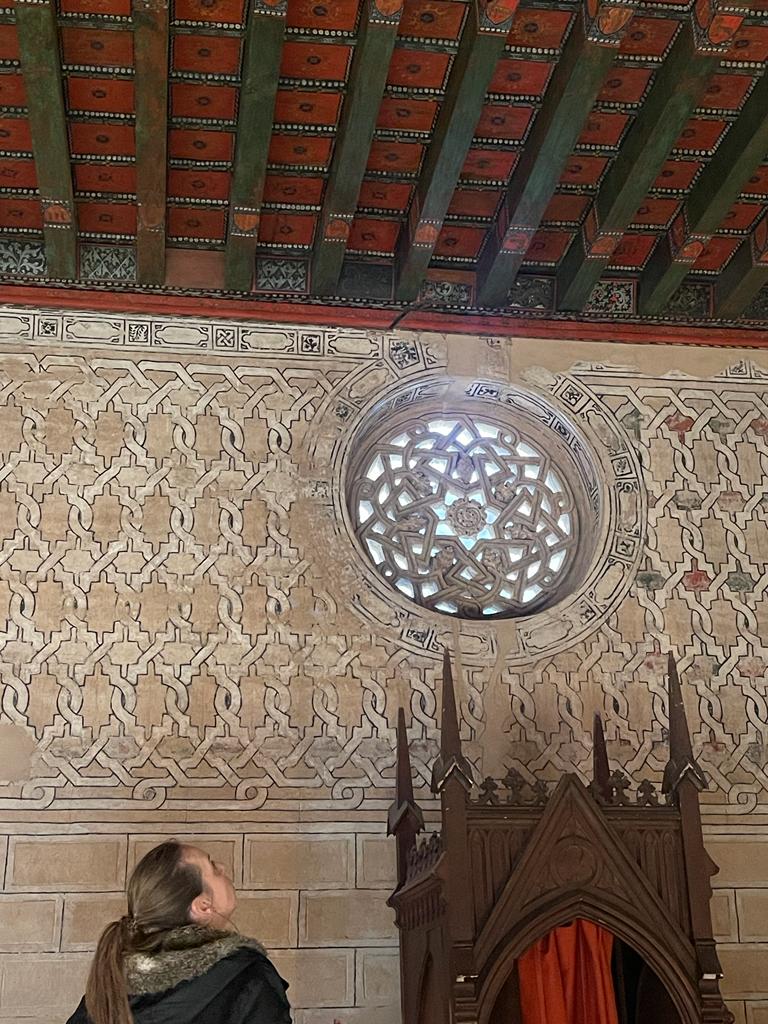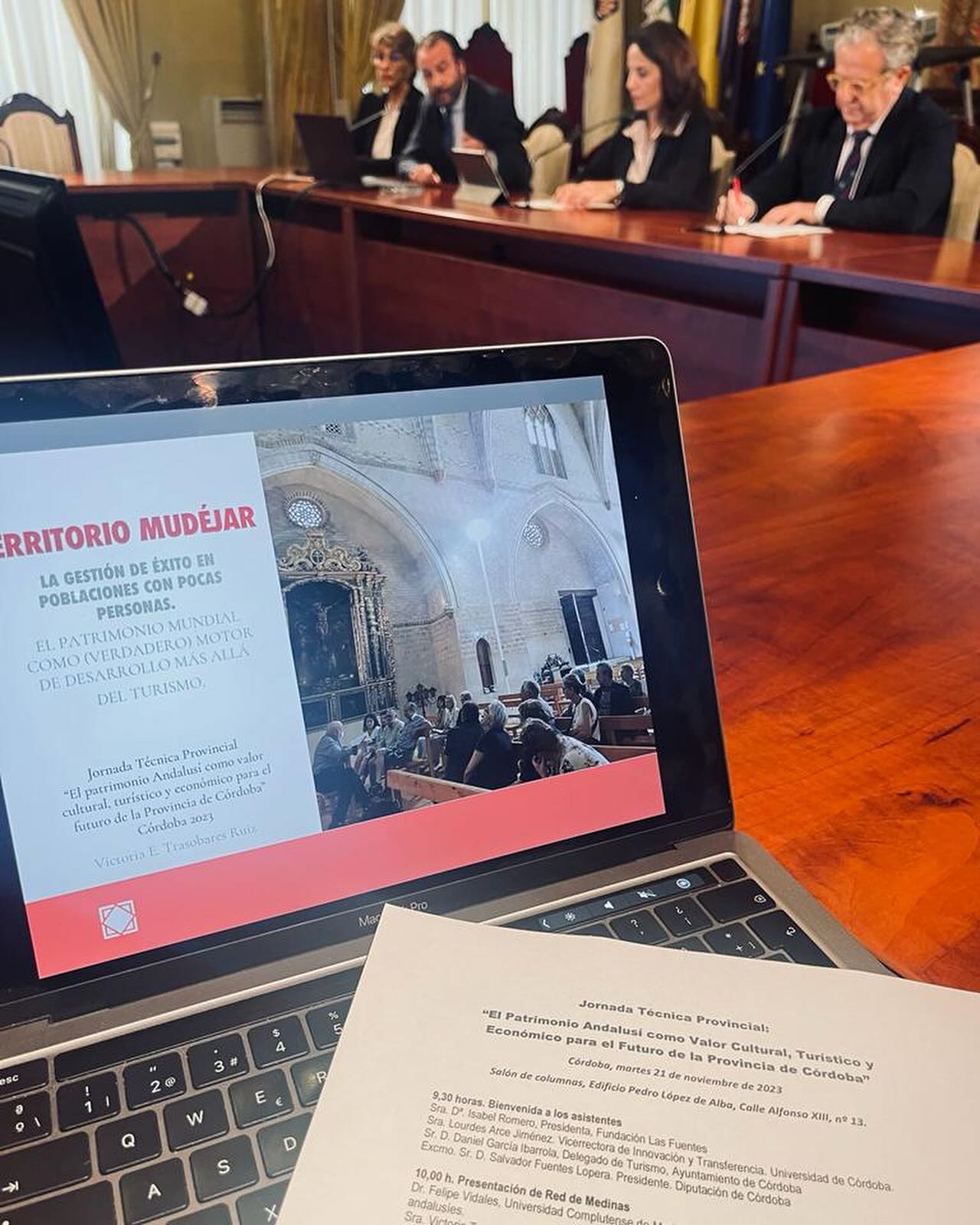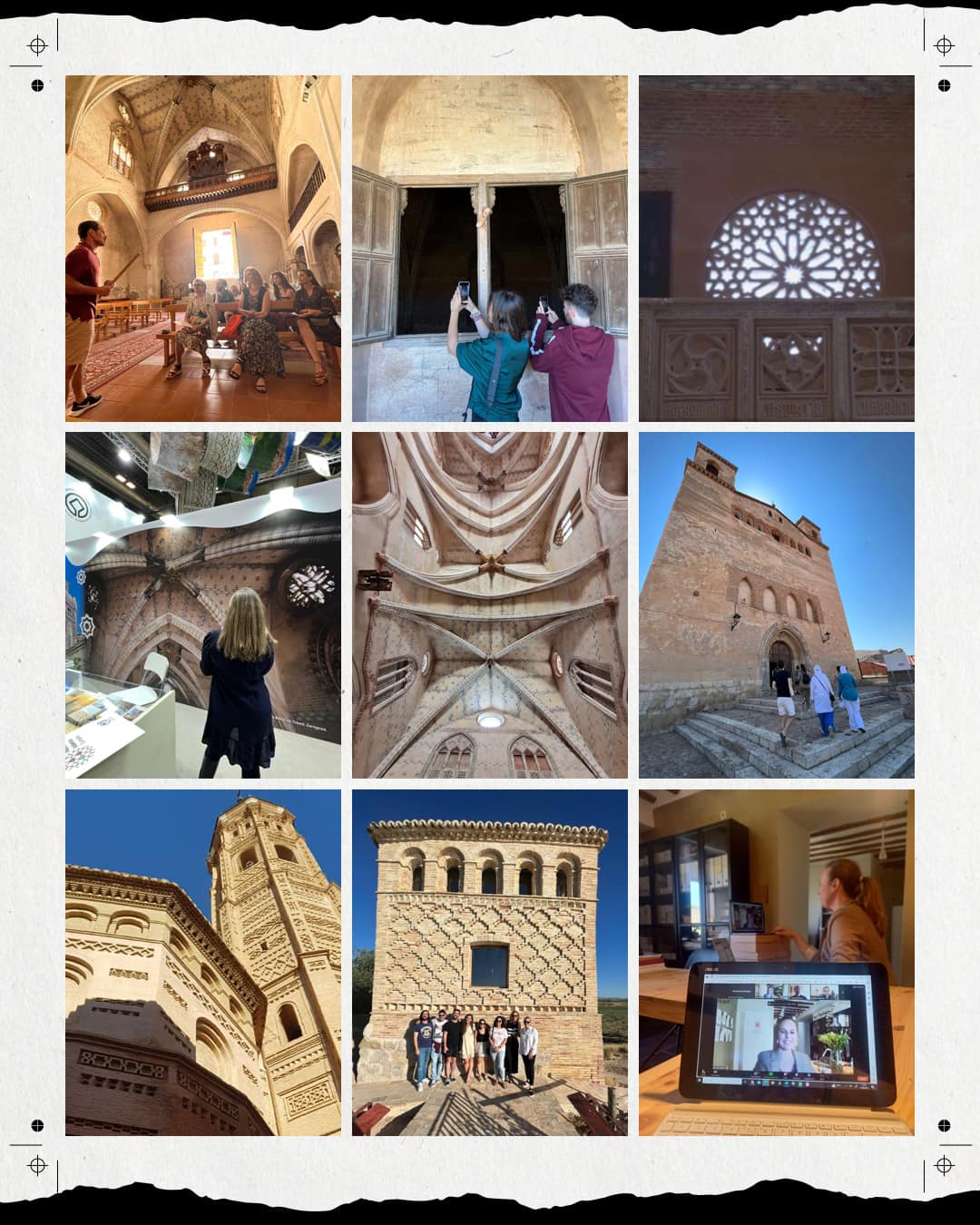Ricla Town Council and Territorio Mudéjar have signed a special agreement to develop a strategic plan for sustainable tourism and heritage action, which consists of the creation of a technical management office to advance strategic projects and develop a calendar of activities in the town.
The agreement will have an initial duration of six months. To develop it, the association Territorio Mudéjar has set up a work team made up of young professionals who have been trained in the organisation thanks to the Desafío-Arraigo internship programme, with which Territorio Mudéjar has been collaborating since 2019 and which has made it possible to create a pool of emerging professionals with the necessary skills for the needs specified by the Ricla Town Council.
This morning this collaboration was presented at the Diputación de Zaragoza by the Deputy Delegate for Culture, Charo Lázaro, the Mayor of Ricla, Ignacio Gutiérrez, and the Director of Territorio Mudéjar, Victoria Trasobares.
The Deputy Delegate for Culture, Charo Lázaro, pointed out that the collaboration presented today “is in line with the work of the Diputación de Zaragoza: offering services to citizens and promoting collaboration between municipalities”. “I would like to highlight the value of these actions that Territorio Mudéjar carries out with its partner towns and villages and that manage to become a strategic pillar of development and directly involve the localities”, said the deputy.
The mayor of Ricla, Ignacio Gutiérrez, has argued the great potential that Ricla has. “Thanks to this agreement we are going to take advantage of this potential to contribute to local development through a tourism and heritage strategy,” he explained. “Using heritage as an engine for development is a great opportunity to establish new pillars of growth and wealth creation that are sustainable and inclusive,” added the mayor.
The director of Territorio Mudéjar, Victoria Trasobares, pointed out that this is the third special agreement that the organisation has signed with a partner town council and that it involves introducing a way of working based on the quality and sustainability of resources from a strategic and unitary supervision. “The model consists of creating advisory committees that the partner town councils can use to contribute a strategic vision to their local resource management work”, she pointed out.
Citizen participation
The team will be supervised by the project management area of Territorio Mudéjar, which will define the strategic lines and integrate the local actions with the different innovation projects that Territorio Mudéjar develops in its Research and Project Stays. A strategy for citizen participation will also be developed in order to gather the contributions that neighbours wish to make to the design of the strategic plan.
This agreement will allow new professionals to work in Ricla to implement pilot actions of preventive heritage conservation, accessibility and heritage visits, as well as actions of citizen participation with the different local agents.
It will also contribute to advancing the concept of cultural landscape and rediscovering the local castle under restoration from a unique model of transdisciplinarity in the teams currently working on the project.
The project started in February with the first sectoral meetings, which will continue in the coming months, and will start different public activities from March with a calendar of conference visits. The activities will have a fixed part (historical-artistic visit to the heritage of Ricla) and another thematic part that will change on each date with specialists or local experts.
Saturday 16 March: architecture and town planning. Urban tour in which the history of Ricla will be explained through the evolution of urban planning and the explanation of its main architectural landmarks, such as the church of the Assumption or the castle.
Saturday 20 April: Landscape. There will be a visit to the architecture and town planning of the town that bring together the life of the residents of Ricla with special attention to the landscape, which is the context that has conditioned and made the town evolve in a certain way.
Saturday 11 May: palaeontology. Ricla has a rich palaeontological heritage located in the surrounding area. Through the route, you can see how this legacy from thousands of years ago still conditions the town today.
By mid-June. Ricla with the family. Educational activity. This is a route with a markedly didactic and educational character. It is aimed at all ages and will take up the work carried out in the 2021-2022 school year with CEIP Maestro Monreal on the project “Circular. Family walks” project. A project of materials for family and educational visits, carried out thanks to the Rural Development Programme (PDR) of Aragon 2014-2020 in the call for aid for the preparation and implementation of cooperation projects between local action groups, for the year 2019 through the group Fedivalca – Comarcas de Valdejalón and Cariñena.
Each dissemination activity will have the collaboration of local people and different gastronomic presentations such as seasonal fruits (cherries, peaches and different varieties of stone fruit), garlic, oil and wine, honey and preserved candied fruit such as figs, as well as meats and bakery and pastry preparations.









